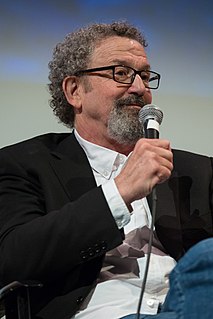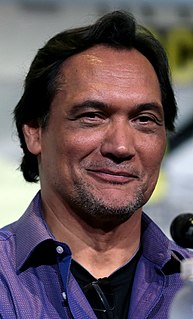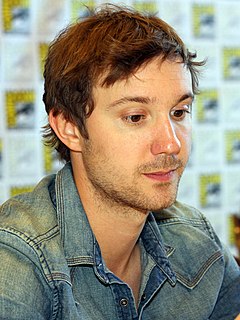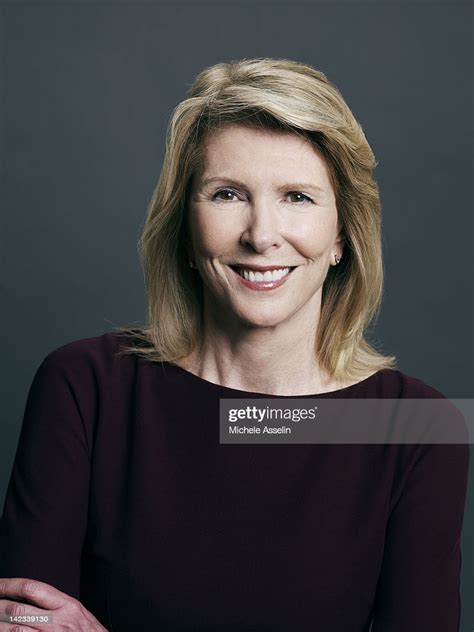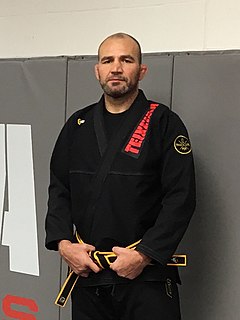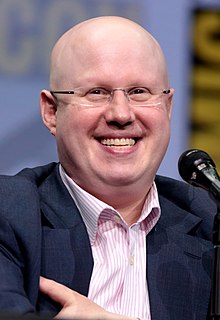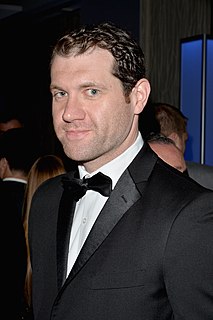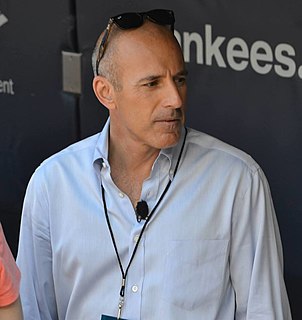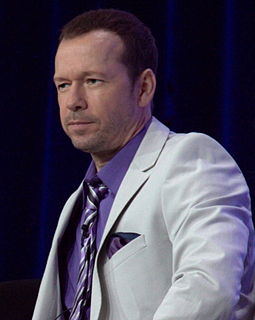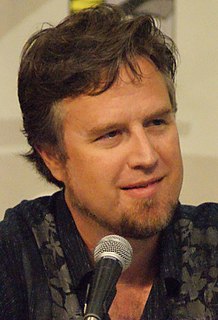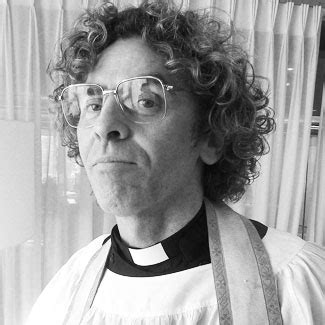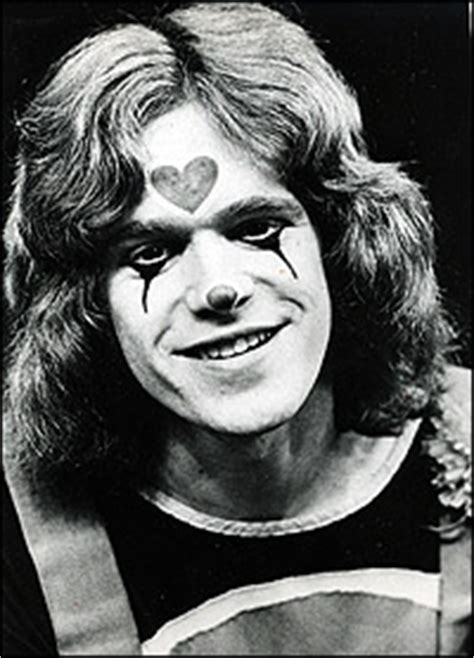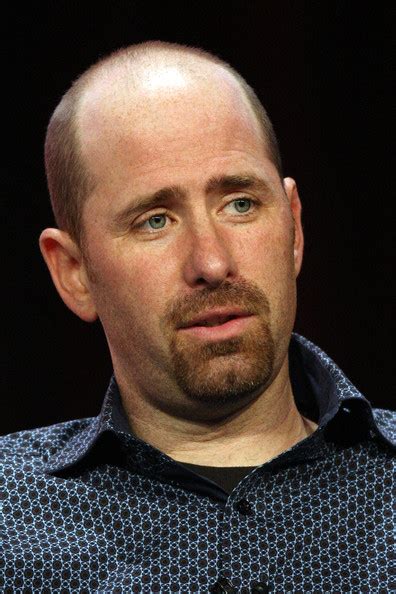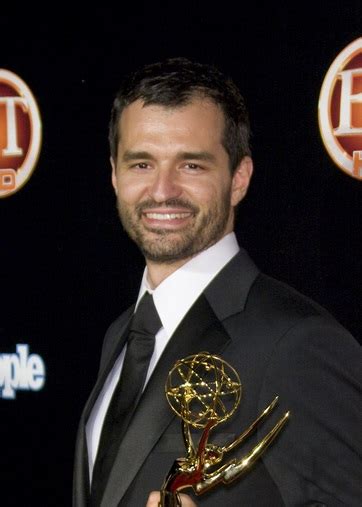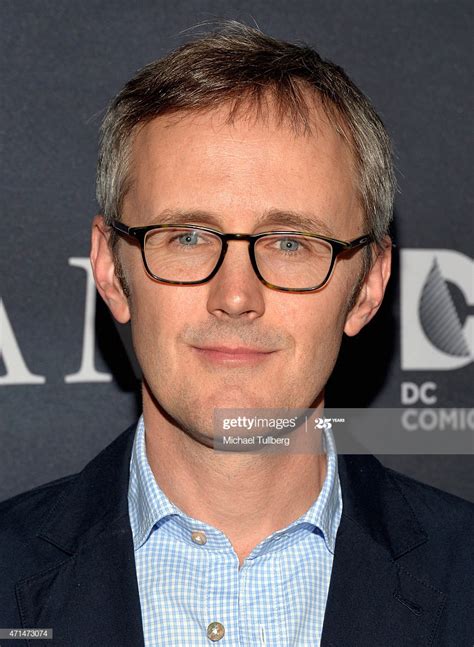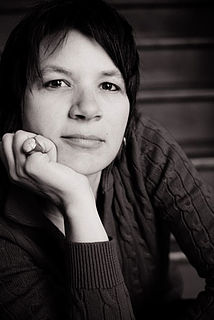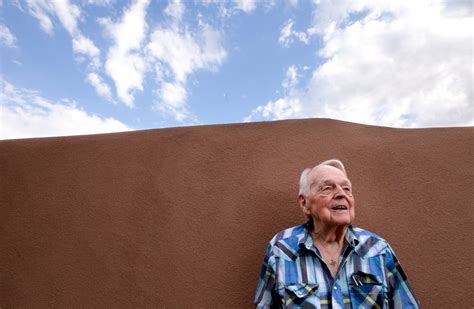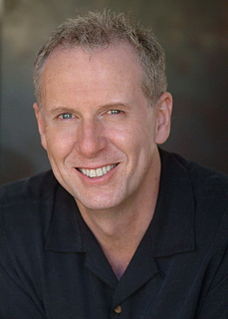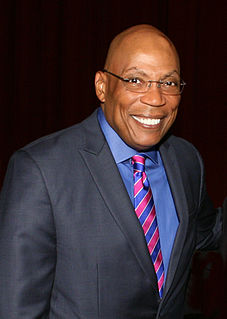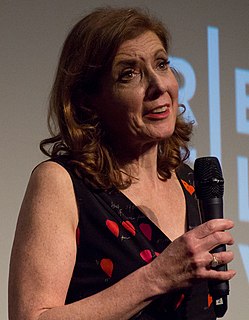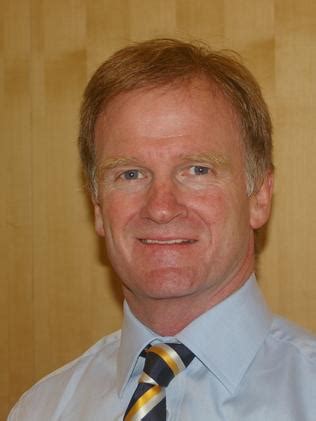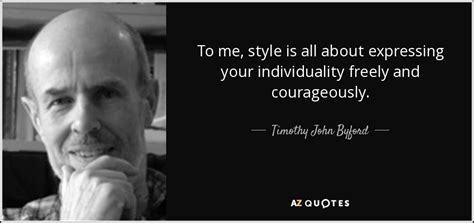A Quote by Thomas Schlamme
I remember running into Aaron's Sorkin office and going "The show's West Wing going to work! I know it's going to work!" And it was literally that moment: the energy, the place, the feel. I didn't know the show would be successful but I thought it was going to be good and I don't have that feeling very often. And we were rehearsing all of that not knowing who the President of the United States was!
Related Quotes
I made multiple leaps where there were no guarantees that I was going to be successful. By the way, I was not always successful. But I think if you go into something new with an open mind, and you let people around you know what you don't know, for the most part they're going to link arms with you. So you can't plan a career so closely that you never make a move unless you know that it's going to work. There's always going to be risk involved in change.
There was a time in my 40s where I thought, oh, it's all over - not just work, but I'm never going to feel young again, I'm always going to feel like I know what's going to happen, I'll know what to expect. Looking back I don't know if that was a midlife crisis, I don't know - but I don't feel that now. There's possibilities. It gets better.
Pretty much up until The West Wing, our leaders had always been portrayed in popular culture as either Machiavellian or dolts. But I thought, "What if we show a group of people who are highly competent, they're going to lose as much as they win, but we're going to understand that they wake up every morning wanting to do good?" That was really the spirit behind The West Wing.
I remember my father, when I said I was going down to Little Rock to work for Governor Clinton's run for president, he thought maybe somebody needed to check the medication cabinet. He thought somebody was playing around with it. He had never heard of him, he said. I said, 'Well, I think he's going to be the next President of the United States.'
Larry David called me and said, "You can never watch The West Wing again. Either the show is going to be great without you and you're going to be miserable, or the show is going to be less than great without you and you're going to be miserable." So I had them send a tape of the first episode that I didn't do. I put it in the VCR and I don't think I got 15 seconds in before I leapt up and slammed it off! It felt like I was watching somebody make out with my girlfriend. I've never seen a West Wing episode in seasons five, six or seven.
Honestly, I was just happy to get the work. I was chuffed to bits. I know David Furnish and Elton John a bit and I remember David talking very excitedly about it. This was going back four or five years even, when we were doing Little Britain at the Hammersmith Apollo. I'd lost my voice that night, but still did the show. I remember thinking: "God, they're going to think that's my voice and I'm not going to get in the film!" But it's just been a pleasure to be a part of.
It's crazy. I don't know how I'm not dead. People think I'm going to get punched in the face: "Something terrible is going to happen to you. You're going to get killed." That's not what's going to kill me. The show is going to kill me. The work is going to kill me. Once I'm on the street, I'm not worried about that.
If I feel like I've done a great job during an interview with the president of the United States live in the Oval Office, it doesn't give me a tenth of the good feeling of going to the school play and making eye contact with my kids as they're onstage delivering their lines. Nothing compares with that moment of connection.
Every job in Hollywood is a risk. You don't know, when you sign a contract, if something is going to pop, you don't know whether this or that network is going to support your show. You just show up and do the best work you can do, gravitate towards the best material, you know, and try to make the right choices. And the rest of it is a roll of the dice.
We need a president that is sitting down, getting Americans to work, getting this economy going. That is the single most important thing that the president of the United States does, is create a climate where job creators know that they're going to be able to risk their capital and have a chance to have a return on the investment. And it's never too late to start that.
